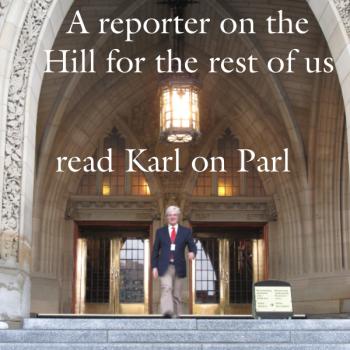The Prime Minister has announced that Canada will renew its commitment to participate in military action against the Islamic State of Iraq and the Levant (ISIL, also know as ISIS), for one year.
Canada’s role, which began six month ago, is supposed to be limited to air strikes and training of Iraqi government and Kurdish forces, behind the actual battle lines.
Canadian troops are not mandated to participate in ground, offensive action. But it seems, in the field, there is no clear demarcation between active participation in combat and training. So far, one Canadian has been killed in action, by friendly fire from Kurdish forces.
Prime Minister Harper said, during his announcement in the House, that Canada will expand its actions from Iraq to include neighbouring Syria as well. This country will do that without formally informing the Assad government of Syria. Syrian leader Bashar Al-Assad is widely considered a war criminal for having bombed and used chemical weapons against his own civilian population during the current conflict in his country.
It is not clear how Canada will engage in military action in Syria without getting entangled in the Syrian civil war. The Prime Minister did not address that issue.
In his response to Harper, Opposition Leader Tom Mulcair of the NDP did talk about Syria, and pointed out that Canada has now become a de facto ally of the murderous Assad regime.
Mulcair also said that his party opposes this military engagement for a number of other reasons.
Among those are: there is no clear exit strategy; this is not a United Nations or NATO operation; and the current mess in Iraq is the result of the ill-conceived U.S. invasion of that country more than a decade ago, an invasion in which Canada (wisely, said Mulcair) did not participate.
Liberal Leader Justin Trudeau echoed Mulcair’s arguments.
There had been some doubt about the Liberal position. The NDP had said from the outset that it would oppose continued military action in the Middle East, but the Liberals said they would wait to hear what the Prime Minister announced.
When Trudeau spoke from a prepared text, however, it was evident that the Liberals had decided well before the Prime Minister rose in the House that they would oppose a military adventure that a number of commentators have said is, at best, redundant (given the small size and scale of Canada’s contribution) and at worst, very dangerous.
The Conservatives have a majority and so it is a foregone conclusion that the House will vote in favour of Harper’s plan.



